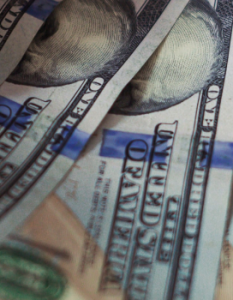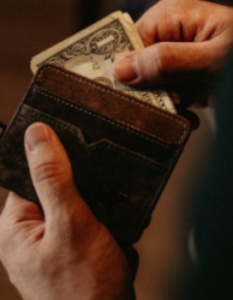Taxpayers using fuel cards are unsure when they will be entitled to deduct VAT and when their purchase of fuel will be exempt from this tax. The problem relates to the lack of clarity regarding the classification of such purchase as a supply of goods or provision of a financial service. The Ministry of Finance, after long consultations, issued on 16 February 2021 a general ruling concerning transactions performed with the use of the so-called fuel cards. The interpretation was intended to finally clarify doubts of taxpayers as to when refuelling with fuel cards is a supply of goods and when it is a service.
The general ruling is based on the jurisprudence of the CJEU, including the most recent CJEU judgment of 2019 ref. C-235/18 vs. Vega International Car Transport and Logistics – Trading GmbH and the most recent polish jurisprudence.
The general ruling applies to the model with 3 entities
The Ministry of Finance made it clear that there are many business models based on fuel cards and each of them should be considered individually. At the same time, they indicated that this ruling refers to a model involving 3 entities.
The first entity (lessor, parent company) is an intermediary entity that provides its counterparties with fuel cards of which it is not the issuer. The counterparty (e.g. the lessee, the subsidiary) purchases the goods from the supplier operating the petrol station (e.g. the fuel company).
Most transactions from 2021 onwards will be even more difficult to classify
From the wording of the ruling we may therefore conclude that all models in which there are more than 3 entities or in which the intermediary entity is the card issuer are not covered by the scope of the ruling and do not benefit from the protective power. The general ruling thus clarifies the situation for a very narrow range of businesses.
For other models, the situation becomes more complicated because at the beginning of the year, Art. 7 (8) defining the concept of supply in a chain transaction was removed from the VAT Act. The majority of individual rulings issued in cases of fuel card transactions were based on the above provision. The change, although in the justification of the amendment it was supposed to be of an orderly nature, may result in the loss of validity of the majority of issued individual rulings concerning fuel cards. This position has been directly confirmed by the Ministry of Finance which issued a statement that along with the removal of the provision of Article 7 (8) from the VAT Act, the protective force of rulings issued in this respect has been lost. This means that currently a very large group of entrepreneurs carrying out fuel card transactions are unsure as to the nature of the service they are providing.
When is a supply of goods or a provision of services?
For the trilateral model described above, four prerequisites have been identified, the cumulative fulfilment of which determines the assumption that the supplier of the goods (the petrol station) has transferred the right to dispose of the goods as owner to the ultimate recipient (the cardholder). The effect of the presumption is to regard the transaction whereby the intermediary makes the fuel card available to the final customer as a transaction for the supply of a service. The following cumulative conditions are listed below:
- acquisition of the goods by the recipient (cardholder) directly from the suppliers;
- the recipient (cardholder) decides solely on the means of acquiring the goods (choice of the place of acquisition), the quantity and quality of the goods, the time of acquisition and the use of the goods;
- the recipient bears the entire costs of acquisition of the goods (excluding the intermediary entity);
- the intermediary role is limited to making available to the recipient a financial instrument for the acquisition of the goods.
General ruling and errors in fuel card settlement
The provision of financial services is covered by the VAT exemption. Thus, the authorities may question the right to deduct VAT in connection with the purchase of fuel. However, it should be remembered that the general ruling does not apply to all possible cases, and classification of a transaction as a service or supply of goods requires an individual approach to a specific situation.
Ambiguities in the ruling of the Ministry of Finance
Indication of specific conditions, the fulfilment of which will be deemed as provision of services, could indeed end the uncertainty related to fuel cards. However, the greatest shortcoming of this ruling is the fact that the above premises are very imprecise. Even the slightest explanation, an example of how to understand the indicated circumstances is missing. As a result, even in the case when a specific business model may be regarded as a trilateral model described in the ruling, it will be difficult for taxpayers to identify whether they meet the conditions specified therein.
For example, does the recipient decide solely where to purchase fuel in a situation where the card authorises him to purchase fuel only at the petrol stations of a particular network? What if the intermediary entity agrees with the cardholder the territorial range of the petrol stations at which refuelling may take place? Does the fact that the intermediary entity may block the transaction or refuse to authorise refuelling preclude the recipient from making his own decisions? Many fuel cards allow refuelling only after authorisation has been obtained via an IT system. The “consent” of the card operator is therefore necessary. The ruling does not clarify whether such authorisation indicates that the recipient does not decide independently when to purchase.
The intermediary is not always limited to making the financial instrument available
Similar doubts are raised by the premise that the recipient bears the entire costs of the purchase. It is not clear what is understood by the concept of total costs. Do we mean the entirety of direct costs incurred in connection with the purchase of fuel, or perhaps also indirect costs? Is the condition not satisfied if the intermediary entity fixes a separate purchase price with the supplier and a separate purchase price with the customer?
The fourth condition, that the intermediary is limited to making available to the customer a financial instrument for the purchase of the good, also leaves room for discussion.
The identification of circumstances in which the intermediary is not limited to providing the financial instrument can be considered. These would be situations where:
- the intermediary entity is responsible and fully liable for the delivered good;
- the intermediary has a customer service system and makes independent settlements with the supplier irrespective of payment by the customer;
- the fuel card is not an instrument on which funds are stored to pay for goods, but only a tool to authorise refuelling.
Uncertainties require an individual analysis of a specific situation
Unfortunately, we will not find the examples or explanations indicated above in the ruling. As a result, even a narrow group of taxpayers affected by the interpretation will have great difficulty in determining whether they may use the protective power of the ruling. As a result, businesses will still be forced to verify their individual situation in order to properly classify fuel card transactions. This, in turn, requires the involvement of a tax advisor who will analyse all aspects of this purchase and indicate appropriate solutions. The general ruling of the Ministry of Finance on fuel cards issued on 16. February 2021 did not give entrepreneurs simple tools to quickly classify the above transactions as a supply of goods or provision of services. As a result, many taxpayers using cards will still have to deal with the problem of accounting for VAT on purchases at petrol stations.
Author:
Dominika Zbonik, LL.B., attorney at law (PL)/tax advisor (PL)






